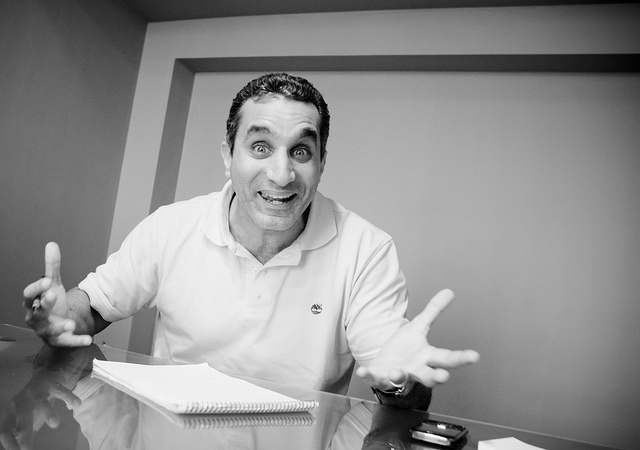Like this article? Chip in to keep stories likes these coming.
That was an unedifying debate in the House Wednesday about Canada expanding its understudy role in the war against the Islamic State. We have to, to make ourselves safe from beheadings here at home, implied the prime minister. Opposition leader Tom Mulcair replied like the lawyer he is. “Has the prime minister written to the United Nations, laying out Canada’s justification …” Harper said he won’t be intimidated by threats from Islamic State lawyers.
But when people fear their homes may be invaded by the new Visigoths and their families butchered, I don’t think legal is the way to go if you want to dissuade them. Suicidal is the way to go. We attack them and because of that they attack us. They say so: the Parliament Hill shooter said it into his phone just before he started shooting. There would be no Islamic State without the U.S. occupation of Iraq. There would’ve been no Al Qaeda thus no 9/11 without the 1982 U.S. invasion of Lebanon and the 1991 Gulf War — Osama bin Laden spelled it out. There’d have been no attack on a Tunis museum last week without western bombing of Libya. Let’s start with facts, please.
Who got this right? Comedians. Jon Stewart says to Bassem Youssef (Egypt’s Jon Stewart): What should America do? Bassem: Well, how about nothing? He says America is like a dog with a hot spot on its butt called the Middle East and it thinks it has to keep licking it but that just makes it worse. No one ever encapsulated U.S. policy better. Stewart asks what follows. Bassem says, BLEEP off and leave us alone. Then he adds, showing true analytic subtlety: “But not right away. If you could BLEEP gradually off that would be better for everyone.” It’s true. Once you’re in you’re part of the problem and getting out can make things worse. The trick isn’t getting in, that just takes stupidity. It’s getting out that requires brilliance.
Why does culture handle these issues so much better than politics? The U.K. is probably the most successful culture factory in the world today; their TV series handle hyper-complicated issues deftly. But their politics is a shallow botch. It’s not because politicians are dolts. Artists can be foolish too. But politicians have to take too many extraneous matters into account. Harper must attack in Syria to distract from our plunging economy and the Duffy trial. Bush had to invade Afghanistan knowing it would do no good — because there was an itch in America to hit back that, as Youseff says, needed scratching. In art you can focus on your subject and ignore that byelection in Manitoba.
What’s odd is how audiences seem able to enter both realms without interfusing them. I’m thinking of the new U.S. series American Crime. It deals subtly with socio-economic and racial elements of crime. Meanwhile over in politics you have the Ferguson mentality all day, every day. It’s a network show, not cable; so it reaches a mass audience. How can they take in the problems so well culturally and be so politically abject? Do its makers hope to influence politics? Probably. Artists often yearn to better the world they mirror. But it’s as if culture is instead a mirror from the future when our species will deal honestly with its problems — however not quite yet. The brain clicks off and on depending on context. It’s not just that art tells the truth and politics lies. It’s that culture is where you let yourself hear the truth but only within limits.
In 1968, at the height of the Vietnam War, British director Tony Richardson made The Charge of the Light Brigade, an anti-war film set during the (get this) Crimean war in what’s now (or till recently) Ukraine. He inserted four superb animated sequences that illuminated the politics (the fleet sailing off from under Victoria’s skirts, the noble British lion rescuing the Turkish virgin from the brutish Russian bear). I don’t think there’s been anything more politically brilliant in film. I happened to talk to Richardson some time afterward. He was pretty cynical. “Art doesn’t change anything,” he grumbled. “But it’s the only thing that makes the horrors of politics and public life somewhat bearable.”
This column was first published in the Toronto Star.
Photo of Bassem Youssef by Hossam el-Hamalawy/flickr
Like this article? Chip in to keep stories likes these coming.




